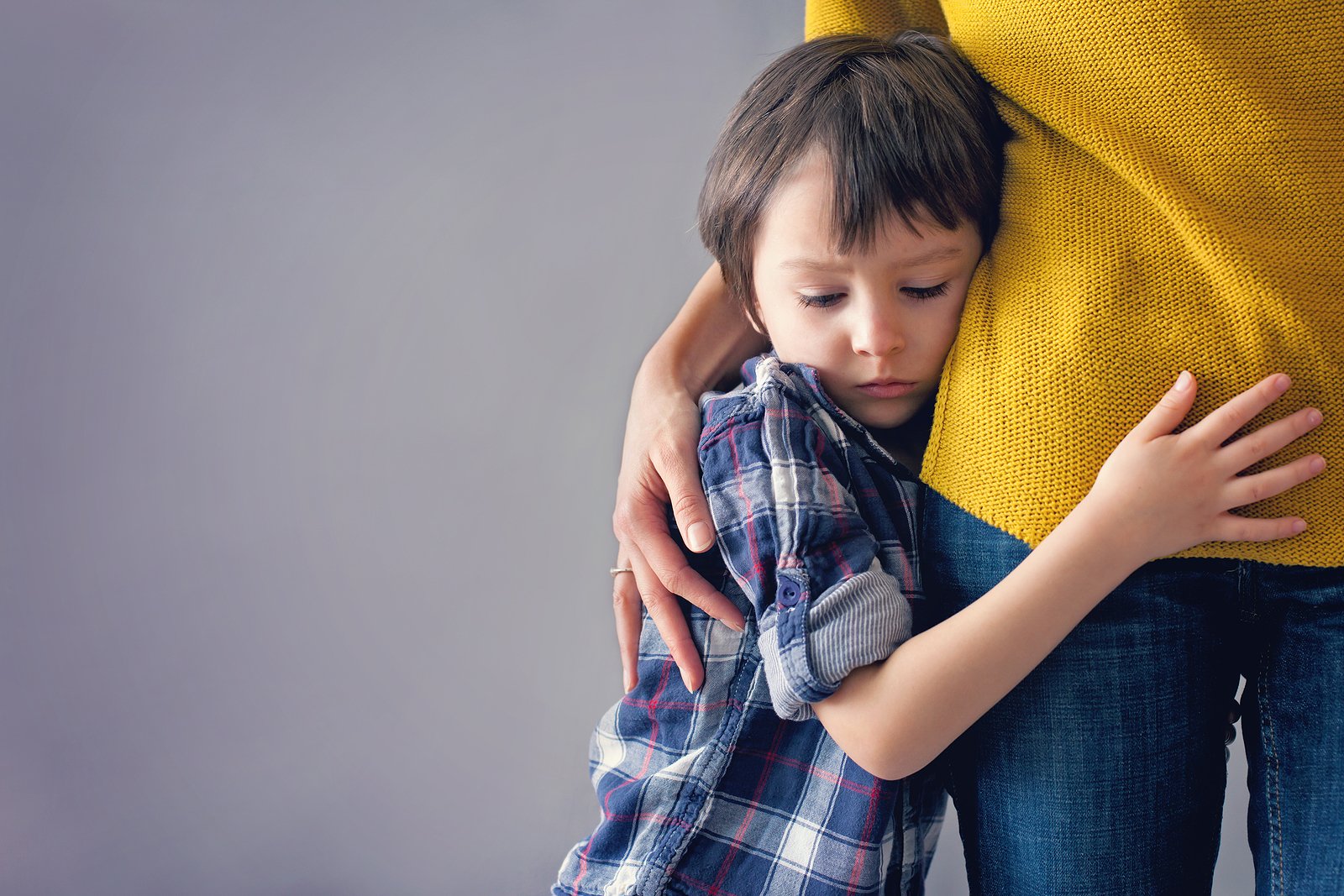It’s not just shyness.
If your child avoids birthday parties, clams up during class, or worries for days before a group activity, you might wonder if it’s something more than just being “a little shy.” As a parent, it’s tough to see your child struggle in social situations, especially when their worries seem to take over. You want them to make friends, enjoy school, and feel confident being themselves. But instead, you’re watching them pull away, freeze up, or panic.
Social anxiety in kids can be confusing and often misunderstood. It’s not always loud or obvious. In fact, it can show up in subtle ways. This includes frequent stomachaches before school or refusing to order food at a restaurant.
The good news? Your child doesn’t have to navigate this alone. With the right support, they can build confidence, feel more at ease in social situations, and learn that it’s safe to show up just as they are.

What Does Social Anxiety Look Like in Kids?
Social anxiety doesn’t always look how you’d expect. Sometimes, it’s not the kid crying before school or visibly panicking at a birthday party. It can be much quieter—and easier to miss.
Here are some common signs of social anxiety in children:
- Avoiding social situations like playdates, group activities, or classroom presentations
- Clinging to parents in new or unfamiliar environments
- Complaining of physical symptoms, such as stomachaches or headaches, especially before school or events
- Refusing to speak in certain settings, even if they talk freely at home (this can sometimes overlap with selective mutism)
- Worrying for days in advance about events like picture day, team tryouts, or parties
- Freezing up when asked to read aloud or answer questions in class
- Fear of embarrassment or being judged by others, even in low-stakes situations
- Low self-esteem or extreme self-consciousness
Every child is different. Some kids may only show one or two of these signs, while others may experience many. What’s most important is noticing when your child’s fear or worry starts getting in the way of their everyday life.
Why Does Social Anxiety Happen?
There’s no one reason why a child develops social anxiety—but often, it’s a combination of factors.
Some kids are naturally more sensitive or cautious, and that temperament can make them more likely to feel overwhelmed in social situations. Others may have had experiences—like being teased, left out, or scolded in front of peers—that led them to fear similar moments in the future.
A few common contributing factors include:
- Genetics: If anxiety runs in the family, kids may be more likely to experience it too.
- Temperament: Children who are naturally shy or slow to warm up may be more prone to social anxiety.
- Life experiences: Bullying, harsh criticism, or social rejection can all increase a child’s fear of being judged.
- Parenting style: Overprotectiveness or high expectations can sometimes unintentionally increase anxiety.
- Environmental stress: Big changes (like moving, divorce, or switching schools) can intensify existing worries.

How Therapy Can Help Kids (and Adults) With Social Anxiety
Social anxiety doesn’t have to define your child—or your family’s daily life. Anxiety therapy in Portland, OR can provide a supportive space where kids learn how to face their fears, build confidence, and understand that they’re not alone.
At Mindful Mental and Behavioral Health PLLC, we offer personalized anxiety therapy for both children and adults. Our team of therapists understands that anxiety shows up differently depending on age, personality, and life experiences, which is why our approach is always tailored to each individual.
For children, therapy often involves:
- Building coping skills for anxious moments (like entering a classroom or speaking in a group)
- Working through fears in a safe, gentle environment
- Helping caregivers learn how to respond supportively at home
- Boosting confidence in social settings with small, manageable goals
For adults struggling with their own social anxiety, or navigating the stress of parenting a child with anxiety—therapy can be just as empowering. We help adults learn how to manage internal worry, understand personal triggers, and support their mental well-being.
Whether it’s your child, you, or both, support is here. You don’t have to face anxiety alone.
How Our Anxiety Specialists Can Help
Watching your child struggle with social anxiety can feel overwhelming. You might wonder if it’s just a phase or if you’re doing enough to help. The truth is, reaching out for support is already a powerful step forward. At Mindful Mental and Behavioral Health PLLC, we’re here to walk alongside you. Whether it’s helping your child feel more confident at school or supporting you as a parent navigating this journey, our compassionate team is ready to help. Social anxiety doesn’t have to take over your child’s life—or yours. Together, we can help your family find calm, confidence, and connection.

Compassionate Support For Portland Families Facing Anxiety
Watching your child struggle with anxiety can be heartbreaking, but there’s help. At Mindful Mental and Behavioral Health PLLC, we offer compassionate, evidence-based therapy for kids and families in Portland, OR. Whether it’s separation anxiety, social worries, or general stress, our therapists create a safe space where your child can feel seen, heard, and supported.
- Contact us here to schedule a consultation with one of our child anxiety specialists.
- Explore our blog to learn more about child anxiety, parenting tips, and how therapy can help.
- Support your child’s emotional well-being—starting today!
Other Services We Offer in Portland, OR
At our Portland office, we understand that anxiety isn’t the only challenge you might be facing. That’s why we offer a variety of supportive services—including therapy for depression, bipolar disorder, trauma, and more. Our team of mental health professionals creates a safe, nonjudgmental space where you can explore what you’re going through and find tools that work for you. If medication is part of your journey, our providers also offer thoughtful, personalized medication management to help you feel more balanced and in control. Whatever you’re navigating, we’re here to walk with you.




